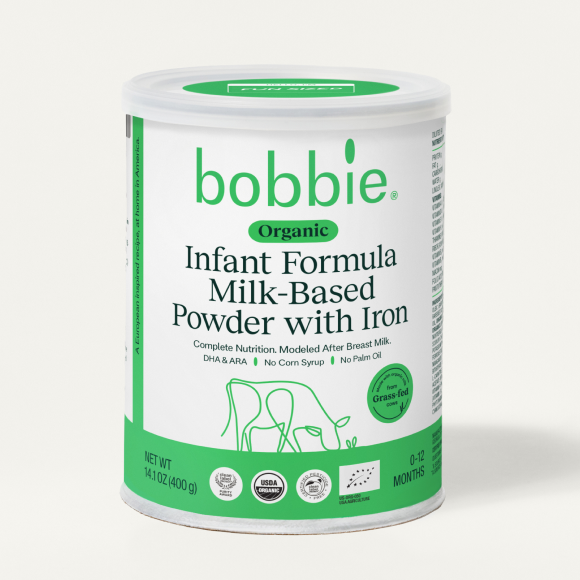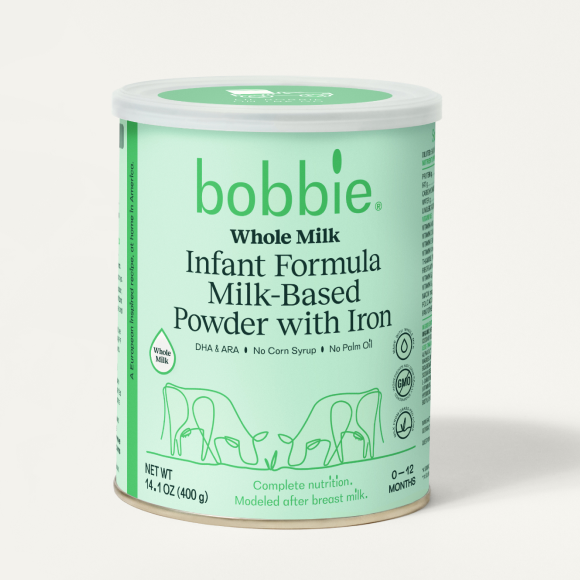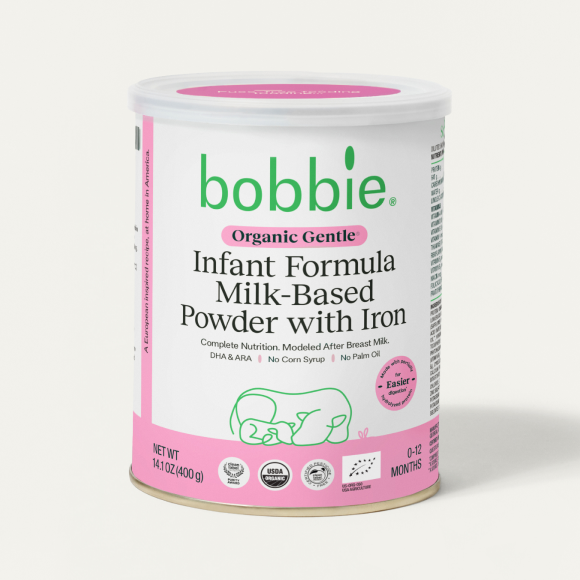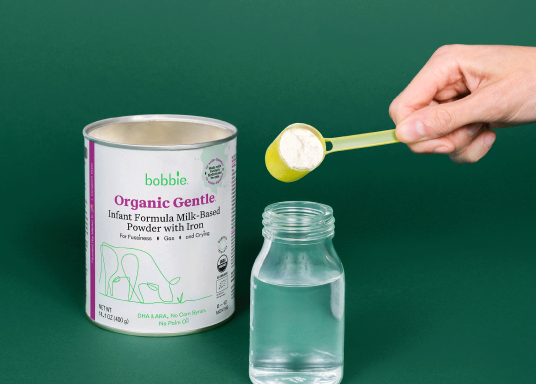Published July 14, 2025

How to Prepare for a New Baby: A Guide for New Parents
Welcoming a new baby into your family is one of life’s biggest, brightest changes. It can feel equal parts joyful and overwhelming, and that’s completely normal. In between choosing baby clothes and decorating the nursery, you might also be wondering how to manage the bigger emotional shift of becoming a parent. Or how to prepare for a new baby while juggling everyday life and advice from, well, everyone.
Here’s the thing: preparing for a baby is a massive transition. The best preparation blends planning with grace, support with space and a good sense of humor. Let’s walk through the emotional, physical and practical essentials so you feel more confident as you wait for your baby’s arrival.
Preparing for Parenthood: It’s More Than a Pinterest-inspired Nursery
Before the baby gear, there’s you. Becoming a parent is a transformation, not an overnight change. Whether you're feeling excited, nervous — or both — those feelings are valid.
Start by getting curious about your values. What kind of parent do you want to be? What fears are coming up? What brings you comfort? Consider journaling your hopes for your child or speaking with a therapist who specializes in parenthood transitions. This mental nesting is just as valuable as stocking up on diapers or prepping the hospital bag.
It might also be the right time to think about feeding. Will you breastfeed? Use formula? Combo feed? Having a flexible feeding philosophy can be one of your most empowering tools as a new parent.
Try to:
-
Explore your birth plan early and revisit it often
-
Talk to friends or family about their postpartum realities
-
Join online communities or prenatal groups for connection
-
Understand the hormonal shifts that may happen during and after birth
You’ll thank yourself later for investing in your emotional toolkit now.
Creating a Calm Home Environment
Spoiler: your newborn baby doesn’t care if your nursery looks like a magazine spread. What matters is your home works for you.
Instead of buying every baby item in sight, focus on preparing functional spaces:
-
Feeding station: A cozy chair, formula or breast milk supplies, burp cloths, bottles and a basket of snacks for you. Browse infant formula options here.
-
Sleep zone: Bassinet, blackout curtains, white noise machine and a soft night light for cozy midnight diaper changes.
-
Soothing corner: Keep your essentials here — diapers, wipes, pacifiers, swaddles, baby carrier and maybe a calming playlist.
-
Changing area: A well-stocked diaper change station with spare onesies, creams and a laundry bin nearby
-
Parent nook: A small shelf or corner with your essentials — water bottle, phone charger, snacks, books or journals
Make this a team effort. Whether it’s your partner, a family member or a friend, involving others in the setup helps share the emotional load and builds connection before the baby arrives.
If you’re prepping with older kids around, invite them to help arrange baby items. It’s a gentle way to include them in the baby’s arrival.


Your go-to resource for all things new baby.
Sign up to get the scoop on feeding, sleep, poop, and so much more.
By singing up for email, you are to receive marketing emails from Bobbie and can manage your email preferences or unsubscribe at anytime
Develop Your Infant Feeding Philosophy Early
Feeding your baby is part science, part intuition and all heart. Before your baby arrives, give yourself the gift of choice. Explore what matters to you: bonding through breastfeeding, shared feeding with your partner, the predictability of formula or a mix of both.
What you choose might shift after your baby is born — and that’s okay. Some babies latch right away, and some don’t. Some parents need to rest and recover, and formula can help with that.
Organic infant formula, like Bobbie’s, offers a nourishing, supportive option. If you want more clarity, take our If you want more clarity, use our Formulator tool to explore what might work best for your family to explore what might work best for your family. You can also browse our full baby feeding guide for extra support.
Also consider:
-
Learning the basics of lactation, even if you plan to formula feed
-
Exploring combo feeding as a flexible solution
-
Discussing your plan with your partner or doula
-
Being open to pivoting based on your baby's needs or your recovery
For comprehensive education on all methods of feeding — breast, bottle, or both — visit
www.thefeedingroom.com for expert-led videos and to sign up for IBCLC office hours.
Preparing for Your Own Postpartum Recovery
Everyone talks about preparing for the baby. But what about preparing for you? Postpartum recovery deserves just as much attention.
Here are a few essentials to stock up on for your own care:
-
Peri-care products (peri bottle, pads, witch hazel)
-
Comfy clothes and leak-proof underwear
-
Snacks and hydration tools (because feeding = hunger!)
-
A support network, whether virtual or in-person
-
Easy-prep meals in the freezer
-
A list of friends or family members who can help with chores, errands or emotional support
It’s also worth setting up:
-
A “you” basket: lip balm, nipple balm, a water bottle, tissues, snacks
-
A care team: lactation consultant, pelvic floor physio, postpartum doula, GP
-
Expectations with your partner around overnight duties and daytime breaks
Consider flexible feeding plans that give you time to rest. Your body’s healing, and sleep-sharing or having formula ready can be game-changing when your newborn baby flips day and night.
What to Say (and Hear) When You’re Preparing for a Baby
The emotional noise can be loud. Strangers might tell you horror stories in the checkout line. A well-meaning friend might say, "Sleep now while you can!" (as if that works).
Here’s your permission to protect your peace. Try gentle boundaries:
-
"We’re trusting our instincts on this."
-
"Thanks for caring — we’re finding our own way."
-
"This baby is lucky to be joining our family."
-
“After research and consideration, we’ve decided to do [insert parenting choice here]. We appreciate your understanding and support of this informed decision!”
You might also be preparing an older child for a new sibling. Start by being honest and loving. Talk about what babies need and how special it is to become a big brother or sister. Reading books about new siblings or gifting a “big sibling” toy can help older kids feel included and important.
Rehearsing short answers for repetitive questions can also help ease your social load. Even something like, “We’re excited and taking it one day at a time,” is enough.
Adjusting to Feeding Life After Baby Arrives
No matter your plan, real life with a baby brings curveballs. Maybe your baby refuses bottles or your milk supply dips. Perhaps you’re navigating latch issues or feeding every two hours around the clock.
Here’s what helps:
-
Feed your baby at least every 3 hours, especially in the early weeks.
-
Have a formula backup ready, even if breastfeeding is going well.
-
Don’t hesitate to call a lactation consultant, feeding coach or pediatrician.
-
Keep extra burp cloths and bottles on hand
-
Use skin-to-skin time to bond and boost feeding cues
If you are formula feeding, budgeting matters — here’s a helpful breakdown so you know what to expect.
And if you’re wondering when to feed, our baby feeding schedule by month can guide you as you get into the rhythm.
But, remember, however you feed, it’s about connection, nourishment and care — both for your little one and for yourself.
You’re More Ready Than You Think
There’s no such thing as a perfect birth plan, a perfect feeding plan, or even a perfect parent. The most important thing is that you are making an effort to prepare; there’s no need to obsess. You are preparing, even just by reading and making the first small steps to get yourself ready.
You’re showing up with care. You’re learning, planning and dreaming. You’re tuning into your baby’s needs and your own. That’s what readiness looks like.
Lean on tools made for new parents:
-
Shop Bobbie for organic infant formula and baby essentials
You’ve got this, and we’re right here with you!
The content on this site is for informational purposes only and not intended to be a substitute for professional medical advice, diagnosis or treatment. Discuss any health or feeding concerns with your infant’s pediatrician. Never disregard professional medical advice or delay it based on the content on this page.










